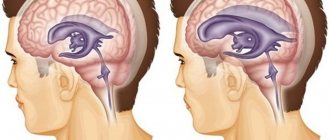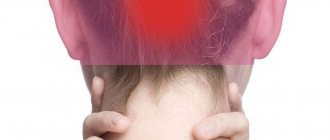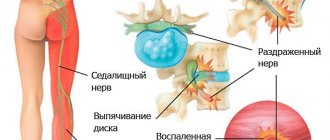Home care for people with dementia
Caring for older people with dementia is based on the constant presence of a caregiver next to the patient. Considering that a loved one is losing most life skills, the support of a caregiver is required throughout the day in all activities.
Care for mild dementia
The patient is helped to perform morning hygiene procedures, get dressed, and get himself in order. Food is prepared for him and he is fed 5 times a day. Correlate diet and medication schedule. Physiological functions are monitored. If the elderly person does not maintain control of the toilet, a diaper is put on him and changed when he is full.
If motor skills are preserved, the ward is taken for a walk. Fresh air stimulates the functioning of the whole body, filling the lungs with oxygen.
It is advisable to conduct classes on the development of cognitive abilities in the first half of the day. At this time, the brain is more active. The materials used for classes are:
- Crosswords;
- Board games;
- collections of exercises.
Physical exercise is also beneficial for the patient. It is recommended to do gymnastics in the morning, breathing exercises, and accustom the ward to Nordic walking.
Treatment of the disease should be under the supervision of a physician. Periodically, a psychiatrist is called to the patient’s home so that the doctor can assess the elderly person’s condition and make timely adjustments to the treatment regimen.
Care for severe dementia
When a patient with dementia loses the ability to move, it is necessary to care for him as for a bedridden patient. Much attention during care is paid to preventing the occurrence of bedsores. The patient's position is regularly changed: they are turned over on the right and left side, on the back, placing the limbs comfortably. They massage those places where the patient has been lying for a long time, avoiding tissue atrophy. The bedding is changed frequently, even if there are small areas of soiling.
For an elderly person, choose comfortable clothes without rough seams made from natural cotton. The lower part of the kit must be securely fastened so that the patient cannot tear off the diapers on his own. In an unconscious state, the patient can stain himself and the bed with the contents, scratch his skin, and cause an infection.
You may also be interested in the article: Proper care for bedridden patients
Food for an elderly person with dementia should be of a liquid consistency: problems arise with chewing and swallowing food. When feeding, the patient is seated, placing pillows under his back. For drinks, closed sippy cups are used. The food is served at a warm temperature. People with senile dementia will not be able to cool it down on their own. And cold dishes cause aversion in a seriously ill person.
Physical activity
Prolong your youthful mind with regular physical activity. Exercise helps maintain the volume of the hippocampus, the area of the brain that is primarily affected by Alzheimer's disease. The best ways to prevent dementia are race walking, swimming, cycling, running, and dancing. Set yourself feasible tasks and, if possible, gradually increase the load.
Scientists from the University of Sydney, Australia, have proven that strengthening muscles can make the brain more efficient. They conducted a six-month experiment in which one hundred volunteers aged 55-86 years with moderate cognitive impairment took part. Participants, in addition to exercises to train memory and thinking, worked out in the gym 2-3 times a week, gradually increasing the load. The muscles of the participants who gradually increased the resistance training became noticeably stronger, and they began to perform better on cognitive tests than patients in the control group who did not practice increasing resistance training. Regular strength training not only increased muscle strength, but also improved brain function, positively affecting cognitive abilities.
Work on a personal plot and vegetable garden can also be considered physical activity, because digging up beds, mowing grass with a lawn mower, raking leaves with a rake improves balance and strengthens muscles.
Tips for relatives of people with dementia
Caring for a loved one who suffers from dementia is hard work. Psychological burnout inevitably occurs. Watching your ward lose his mind every day has a negative impact on the condition of loved ones.
We recommend following expert advice when caring for an elderly person with dementia:
- Try to accept the disease and its manifestations in behavior. Remember that the patient’s negative statements about you, accusations of theft and deception are not his true thoughts and feelings, but symptoms of the disease.
- Create a warm emotional environment for the ward. You need him to be able to trust you. Then the seriously ill person will not experience anxiety and despair.
- Maintain a clear daily routine. A patient with dementia should develop a sleep-wake pattern to avoid confusion.
- Control your emotions, do not scream, no matter what actions the patient performs. Such reactions can often provoke him to run away from home.
- Do not demand a quick answer to a question from a sick person. He forgets the meaning of words and thinking occurs at a slow pace.
- Try to talk with the patient on different topics: this will help him maintain his speech. An elderly person remembers events of the past clearly; focus on this. In this way, you solve two problems: you support the patient in trying to remember information and evoke pleasant feelings in him. The elderly enjoy reminiscing about their childhood and youth.
- If you feel like you are on the verge of a breakdown, give yourself a social break: ask for help from loved ones, hire a nurse, find a good boarding house for an elderly person.
A patient with dementia is often placed in a boarding house for the elderly when it is not possible to care for him at home.
An infinite number of the most “beautiful” forms
Now is the time to expand our reasoning. We have pointed out that health and illness are not simply discrete categories, but rather a spectrum of states with no clear transition when viewed as biological entities. I think it is worth adding arguments in favor of this idea and highlighting the problem from different angles.
When we talk about the transition between health and disease, and the reverse movement, we understand that the path to disease consists of many small steps - minimal changes in the tissues of our body. These are mutations, immune processes, cell growth or death, accumulation of unnecessary substances or increased consumption of necessary ones. At some point, the changes become so significant that symptoms, laboratory changes, or changes visible on ultrasound or MRI appear, and from that point on we record the disease. But when did it start? Did it begin with the first mutation in the future cancer cell or with the first dying cardiomyocyte? This question is often meaningless in practice, but for our reasoning it is of great importance.
In large studies, doctors and scientists have discovered various features that increase the risk of developing the disease. These features have been called risk factors. Smoking, high cholesterol, and low physical activity are risk factors for cardiovascular disease. For many diseases, such risk factors can be found. For schizophrenia, for example, this would be the use of cannabinoids. This tarnishes marijuana's reputation as a "safe" drug. However, individual substances in marijuana are still used as medicines [1], and psychedelic therapy is gaining popularity among researchers [2]. The identification of risk factors and other research have created a world where, in addition to health and disease, there are also pre-disease conditions. This concept better reflects a continuum of states than two discrete categories. For example, in patients with schizophrenia, cognitive impairments are described that precede the development of psychosis itself, and in Alzheimer's disease, beta-amyloid begins to be deposited before the first symptoms of dementia appear. The disease doesn’t seem to exist yet, but it already lives in our body.
An additional difficulty is that often such signs are probabilistic, and it is not possible to strictly link them with the development of the disease. There are rarer examples in which what exists before the symptoms definitely points to the development of the disease in the future. In Huntington's chorea, one mutation determines whether you get the disease or not. If you are a carrier of this mutation, then there are no options - the disease will develop unless you die before the age of its onset. Does a carrier of this mutation suffer from Huntington's chorea? Biological research in medicine has shown us the complexity of such issues. We saw that everything is not as simple as we thought. We saw how things are in reality.
Another side of the problem of distinguishing between illness and health is the understanding that illness of one organ does not mean illness of the whole body. Let's say I have gastritis - am I sick or healthy? But it’s just the stomach, not the whole body. It turns out that there is more healthy in me than sick. This means I am more healthy than sick. These are strange thoughts, but they are relevant in the context of the continuum of health and illness. There are processes that affect us more than others. Advanced stomach cancer affects us more seriously than the flu. Both are diseases, but one of them is more “healthy” than the other. However, we have not yet touched deeply on the topic of self-perception. Am I really sick if I don’t consider myself sick? How do I react to my illness? And—in the case of a mental disorder—where do we draw the line between the normal me and my illness? These questions are complex and unlikely to have a clear and definitive answer, but their formulation and discussion are important for the development of medicine.
Caring for a patient with dementia in a boarding house
Boarding houses are divided into two types: public and private. People are admitted to public institutions based on referrals from social service centers. No special voucher is required for a private boarding house. The establishments provide similar services. Differences may relate to the quality and cost of service.
The advantages of a private boarding house are:
- small number of residents;
- modern rehabilitation equipment and technical equipment;
- personal care for seriously ill patients.
At home, care falls on the shoulders of one family member; in a boarding house, care services are provided by different employees. The staff not only have experience in caring for older people with chronic diseases, but also undergo regular training. A patient with dementia receives:
- medical care for illness;
- psychological assistance;
- hygiene care;
- fractional dietary meals.
Patients do not feel lonely. The elderly live surrounded by peers; leisure programs and hobby classes are organized for them.
You may also be interested in the article: How to choose a private facility for the elderly
Active social life
An active social life is beneficial at any age, and in the elderly it is necessary both as a remedy for depression and as a stimulator of brain activity.
Scientists suggest that regular social contacts and new acquaintances make people more active in the areas of the brain responsible for language and memory. This causes the brain to form new neural connections that make it more resistant to degeneration.
Traveling, excursions, interest clubs, trips to theaters and exhibitions will bring not only new positive impressions and knowledge, but also new acquaintances and new friends.
Don’t forget about your personal life, including your sex life. The connection between sexual activity and normal brain function is not yet well understood. This gap was partially filled by scientists from Coventry University, UK. They conducted a survey among 6,800 people aged 50 to 89 years from different regions of the country, asking them to answer questions about their sex lives and take a series of tests on memorizing words and recalling number sequences. It turned out that sexually active men were significantly better at both words and numbers. Sexually active women were better at remembering words, but not numbers.
Scientists explain the noticeably better results in sexually active people by the effect on the brain of the hormones dopamine and oxytocin, generated during sexual intercourse and helping to keep the brain in good shape.
Prevention of dementia
Eliminating the causes of dementia should begin at a young age.
- Quit smoking and alcohol. Abuse of bad habits causes cerebral infarctions and strokes.
- Play sports and exercise. Movement improves the exchange of oxygen in the blood, the cells receive constant fresh nutrition. Walking improves thinking and attention.
- Remove spicy, fatty foods with excess carbohydrates from the menu. Include fresh vegetables, fruits, nuts, cereals, fish and seafood in your diet.
- Avoid intoxication of the body. Do not choose work associated with hazardous production.
- Get tested regularly for blood sugar and cholesterol levels, and do an ultrasound of your internal organs.
- Train your intellect constantly: learn new information, a foreign language, a profession.
It is important to undergo a medical examination every year from a general practitioner, independently or from a labor organization.
Stress control
Research shows that prolonged stress predisposes to the development of Alzheimer's disease and dementia. It is especially dangerous to be nervous if there are other risk factors.
According to researchers, when stress occurs, the body releases a hormone called corticotrophin releasing factor, which increases the production of beta-amyloid protein. These proteins are known to form insoluble aggregates called amyloid plaques and trigger processes that lead to neurodegenerative changes in the brain.
To better deal with stress, it is recommended to get enough sleep, walk more in the fresh air, do yoga, and master relaxation or meditation techniques. If you can’t cope on your own, then you need to contact a specialist.
Classification
Dementia is conventionally divided according to the type of disease, localization of organic lesions and clinical course.
According to the main classification, there are 3 types of dementia.
- Alzheimer's type. It is based on atrophic, primary degenerative processes in the brain.
- Cerebrovascular type. Damage to brain cells has a secondary cause. It becomes the result of vascular pathologies and poor blood supply to the brain.
- Mixed type. Combines both mechanisms.
The volume of brain lesions influences the clinical form of the disease. With lacunar dementia, memory and intellectual activity are primarily affected. Emotionally, there are fewer manifestations, although tearfulness and sentimentality may be present. With global dementia, there are severe disturbances in memory, thinking, as well as a disorder of consciousness, up to the complete collapse of the personality.
Regarding localization, types of dementia are divided:
- on the cortical - the cerebral cortex is predominantly affected;
- subcortical - subcortical structures are subject to progressive damage;
- cortical-subcortical - combines the previous 2 types;
- multifocal - focal lesions are characterized as multiple, in all parts of the central nervous system.











